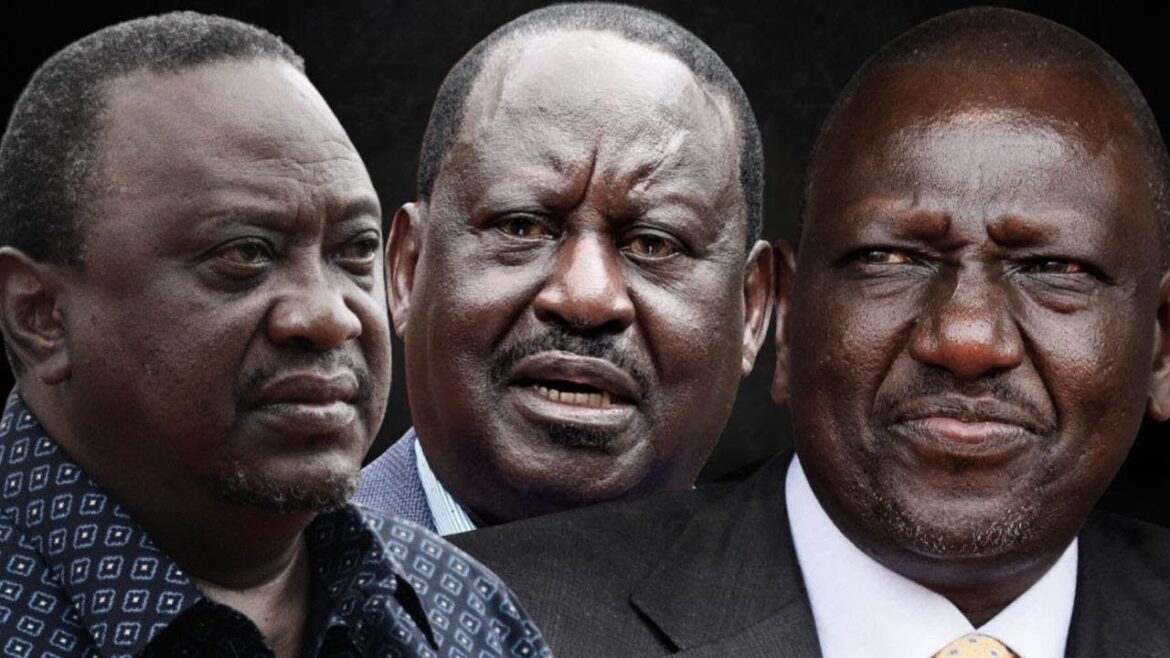Boomers’ Betrayal: How Nostalgia and Naivety Doomed Kenya to Poverty and Infamy
The Baby Boomer generation in Kenya, born between 1940 and 1970, inherited a nation pulsating with post-independence promise: functional infrastructure, accessible jobs, and vibrant public spaces. Yet, their addiction to nostalgia, susceptibility to manipulation, and refusal to confront their oppression have condemned Kenya to an endless cycle of poverty, division, and infamy.
By failing to interrogate the hollow promises of their leaders, Boomers squandered immense potential, misled younger generations into voting for demagogues like Uhuru Kenyatta and William Ruto, and perpetuated a political culture of stupidity epitomized by their anthem, “tugokira tene” (we will return to the past).
Captured by religious dogma, colonial brainwashing, and a contempt for homegrown intellect under the guise of cultural compliance, they have left a legacy of broken systems and lost opportunities. Age, as their actions prove, is no measure of wisdom; fools, too, grow old.
Nostalgia as a Weapon of Stagnation
Nostalgia-ism, as a construct, refers to the deliberate invocation of a romanticized past to shape political narratives and mobilize support. It’s a tool often wielded by propagandists to evoke emotional connections to a perceived golden era, real or imagined, to legitimize contemporary political agendas.
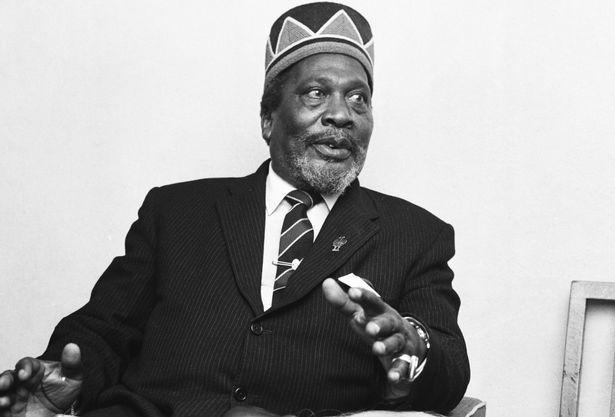
Boomers were kept trapped in an ideological-bondage of revisionist-rhetoric touting Jomo Kenyatta’s era of “plenty”
In the context of Uhuru Kenyatta’s kakistocracy, nostalgia-ism can be analyzed through the lens of his father Jomo Kenyatta’s legacy and the use of Kikuyu folklore, particularly the prophecies of Mugo wa Kibiru, to frame Uhuru’s rise as preordained and culturally significant. This narrative, while potent, invites scrutiny for its reliance on myth-making and selective historical memory to serve political expediency.
Nostalgia-ism as a Political Construct
Nostalgia-ism in politics thrives on crafting a collective memory that glorifies past leaders or events, often glossing over their complexities or failures. It’s a form of propaganda that taps into cultural identity, historical pride, and communal aspirations to consolidate power. In Kenya, where ethnic affiliations heavily influence politics, nostalgia-ism can be particularly effective in rallying specific communities by invoking their historical prominence or supposed divine favor.
For the Kikuyu, a dominant ethnic group in Kenyan politics, nostalgia-ism often centers on the Mau Mau rebellion, Jomo Kenyatta’s role in independence, and cultural figures like Mugo wa Kibiru, a revered Kikuyu seer.
Propagandists use nostalgia-ism to create a sense of continuity between a glorified past and the present leader, positioning the latter as the natural heir to a heroic legacy. This can obscure policy failures, systemic issues, or the candidate’s own merits (or lack thereof), replacing critical evaluation with emotional loyalty.

Aging war-monger and prominent Uhuru Kenyatta propagandist Mutahi Ngunyi successfully hoodwinked Boomers to rally around war-criminals through nostalgia-ism and ethnic polarization
In Uhuru Kenyatta’s case, his 2013 and 2017 presidential campaigns leaned heavily on his father’s legacy and Kikuyu cultural narratives, including the prophecy of Mugo wa Kibiru, to cement his political legitimacy.
Jomo Kenyatta’s Legacy: Real and Imagined Achievements
Jomo Kenyatta, Kenya’s first president (1963–1978), is a towering figure in Kenyan history, celebrated as the face of the independence struggle. His legacy includes the symbolic unification of Kenya under the banner of Harambee (pulling together) and Uhuru na Kazi (Freedom and Work), which promoted national development and self-reliance. However, his presidency was also marred by elitist favoritism, land grabbing, political assassinations, elephant poaching and authoritarianism.
His administration entrenched a home-guard elite, with vast tracts of land amassed by his family and allies, often at the expense of his own Kikuyu community, the freedom fighters and even communities in other counties.
The nostalgia surrounding Jomo Kenyatta often emphasizes his role as a (fake) liberator while downplaying these controversies. For Uhuru, this selective memory was a political goldmine. His campaigns portrayed him as the heir to Jomo’s vision, a scion destined to restore Kikuyu dominance and national stability. This narrative conveniently sidestepped Jomo’s documented failures, such as the marginalization of socialist leaders like Pio Gama Pinto and Bildad Kaggia, who challenged his capitalist policies and cronyism.
By framing Jomo’s era as a time of unity and progress, Uhuru’s propagandists led by Mutahi Ngunyi could present his candidacy as a return to that imagined golden age, appealing to Kikuyu voters and their allies who felt politically besieged, especially after the 2007–2008 post-election violence and the International Criminal Court (ICC) charges against Uhuru.
Mugo wa Kibiru and the Prophecy Narrative
Mugo wa Kibiru, an 18th–19th century Kikuyu prophet, is a central figure in Kikuyu folklore, credited with foretelling the arrival of colonialists, the Kenya-Uganda railway, and the end of British rule. His prophecy about a fig tree in Thika falling to mark the end of colonial rule in 1963 is particularly iconic, as the tree’s collapse was seen as a fulfillment of his vision.
Another prophecy attributed to Mugo suggests that Kikuyu leadership would be briefly interrupted but would return and remain within the “House of Mumbi,” the mythical mother of the Kikuyu people.
In the context of Uhuru Kenyatta’s elections, this prophecy was repurposed to suggest that his presidency was divinely ordained.
The narrative went that after Jomo Kenyatta’s presidency (1963–1978), leadership passed to Daniel arap Moi (Kalenjin, 1978–2002), then to Mwai Kibaki (Kikuyu, 2002–2013), and back to Uhuru (Kikuyu, 2013–2022), fulfilling Mugo’s prophecy of enduring Kikuyu leadership.
This framing done on Uhuru Kenyatta-owned Kameme TV and Kameme FM was particularly potent among radicalized rural Kikuyu voters of limited education and exposure, who saw Uhuru’s rise as a restoration of their community’s rightful place in Kenyan politics, especially amid manufactured tensions with other ethnic groups like the Kalenjin and Luo. This was the very reason why the Kenyatta family (forcefully) acquired Kameme TV/FM.
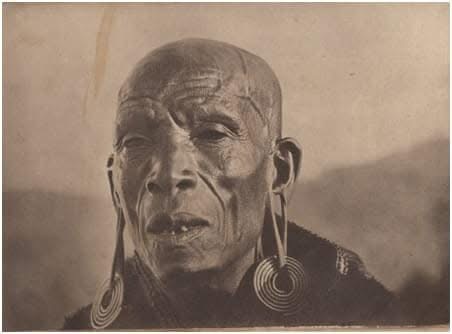
Kikuyu seer Mugo wa Kibiru: There’s no definitive historical record that he explicitly predicted a Kenyatta dynasty.
However, the use of Mugo wa Kibiru’s prophecy as political propaganda is problematic. First, the prophecy’s authenticity and specificity are questionable. Kikuyu oral traditions are fluid, and prophecies can be reinterpreted or embellished to suit contemporary needs. There’s no definitive historical record that Mugo explicitly predicted a Kenyatta dynasty. Second, the prophecy’s invocation was a fraudulent appropriation of cultural heritage, used to manipulate voters rather than reflect genuine spiritual belief.
It reinforced ethnic chauvinism through manufactured consent socially-engineered by fraudulent propagandists, portraying Kikuyu dominance as a divine mandate, which alienated other communities and deepened Kenya’s ethnic divides.
Political Expediency and Ethnic Mobilization
Uhuru’s 2013 election, in particular, was a masterclass in nostalgia-driven propaganda. Facing ICC charges for his role in the 2007–2008 genocide, Uhuru and his running mate William Ruto (Kalenjin) crafted a narrative of victimhood and ethnic solidarity. The Jubilee coalition portrayed the ICC as a Western attack on Kenyan sovereignty, with Uhuru as a defender of Kikuyu pride and national unity, echoing Jomo’s (fictitious) anti-colonial stance.
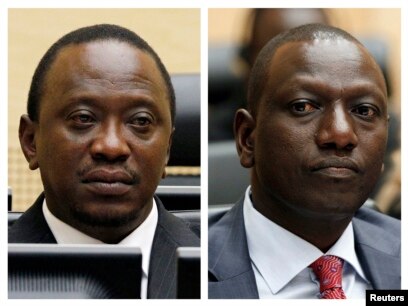
WAR CRIMINALS: Despite being Western puppets, Uhuru Kenyatta and William Ruto convinced boomers that their ICC-cases were a threat to Kenyan sovereignty
The Mugo wa Kibiru prophecy was woven into this narrative, suggesting that Uhuru’s leadership was not just politically necessary but cosmologically inevitable. This resonated deeply in the rural hinterlands Central Kenya, where illiterate Boomer Kikuyu voters, feeling targeted by the ICC and opposition leader Raila Odinga (Luo), rallied behind Uhuru.
The nostalgia-ism here served multiple purposes:
- Legitimizing Dynastic Politics: By tying Uhuru to Jomo’s legacy and Mugo’s prophecy, his campaign downplayed his own political inexperience and the controversies surrounding his family’s wealth. Instead, he was presented as a predestined leader, fulfilling a cultural and historical mandate.
- Ethnic Cohesion: The prophecy narrative reinforced the Kikuyu’s sense of unity under the “House of Mumbi,” countering internal divisions and external threats. This was critical after the 2007–2008 violence, which had pitted Kikuyu against other groups, particularly the Kalenjin thereby reinforcing analysis that the ethnic skirmishes were engineered by the Kenyatta family to manufacture this very consensus.
- Deflecting Criticism: Nostalgia-ism shifted focus from policy debates to emotional and cultural appeals. Uhuru’s opponents, struggled to counter this narrative without appearing to attack Kikuyu heritage.
Critiquing the Narrative
The reliance on Jomo Kenyatta’s imagined achievements and Mugo wa Kibiru’s prophecy raises serious questions about political accountability. Jomo’s legacy, while foundational, was not unblemished. His administration’s land policies, for instance, favored Kikuyu elites, contributing to inequalities that fueled later conflicts like the 2007–2008 violence.
Uhuru’s invocation of this legacy ignored these inconvenient truths, presenting a sanitized version of history that exaggerated Jomo’s contributions while sidestepping systemic failures.
Similarly, the use of Mugo wa Kibiru’s prophecy can be seen as a cynical exploitation of Kikuyu spirituality. Prophecies, by their nature, are open to interpretation, and their political deployment risks reducing sacred traditions to campaign slogans. The claim that Uhuru’s presidency fulfilled Mugo’s vision lacks corroboration beyond anecdotal sources and was amplified by political operatives through Kameme TV/FM owned by the Kenyatta family to stoke ethnic pride.

The Kenyatta family acquired MediaMax Group (owners of Kameme) to reinforce these fraudulent depictions of their dynasty as being ordained by Mugo wa Kibiru
Moreover, it perpetuated a narrative of Kikuyu exceptionalism, which critics argue exacerbated ethnic tensions and undermined national unity.
Broader Implications
The use of nostalgia-ism in Uhuru’s campaigns highlights a broader trend in Kenyan politics: the manipulation of cultural and historical narratives for electoral gain. This tactic is not unique to the Kikuyu or Uhuru; other Kenyan leaders, like Moi with his Nyayo philosophy and Ruto with his “Bottom-Up” agenda, have similarly used populist rhetoric to mask systemic issues. However, the Kikuyu’s demographic and economic weight, combined with their historical role in independence, makes their nostalgia-ism particularly potent and divisive.
For Uhuru, the strategy worked. He won in 2013 and 2017, leveraging his father’s legacy and cultural narratives like Mugo’s prophecy to secure Kikuyu loyalty and broader support. Yet, this came at a cost.
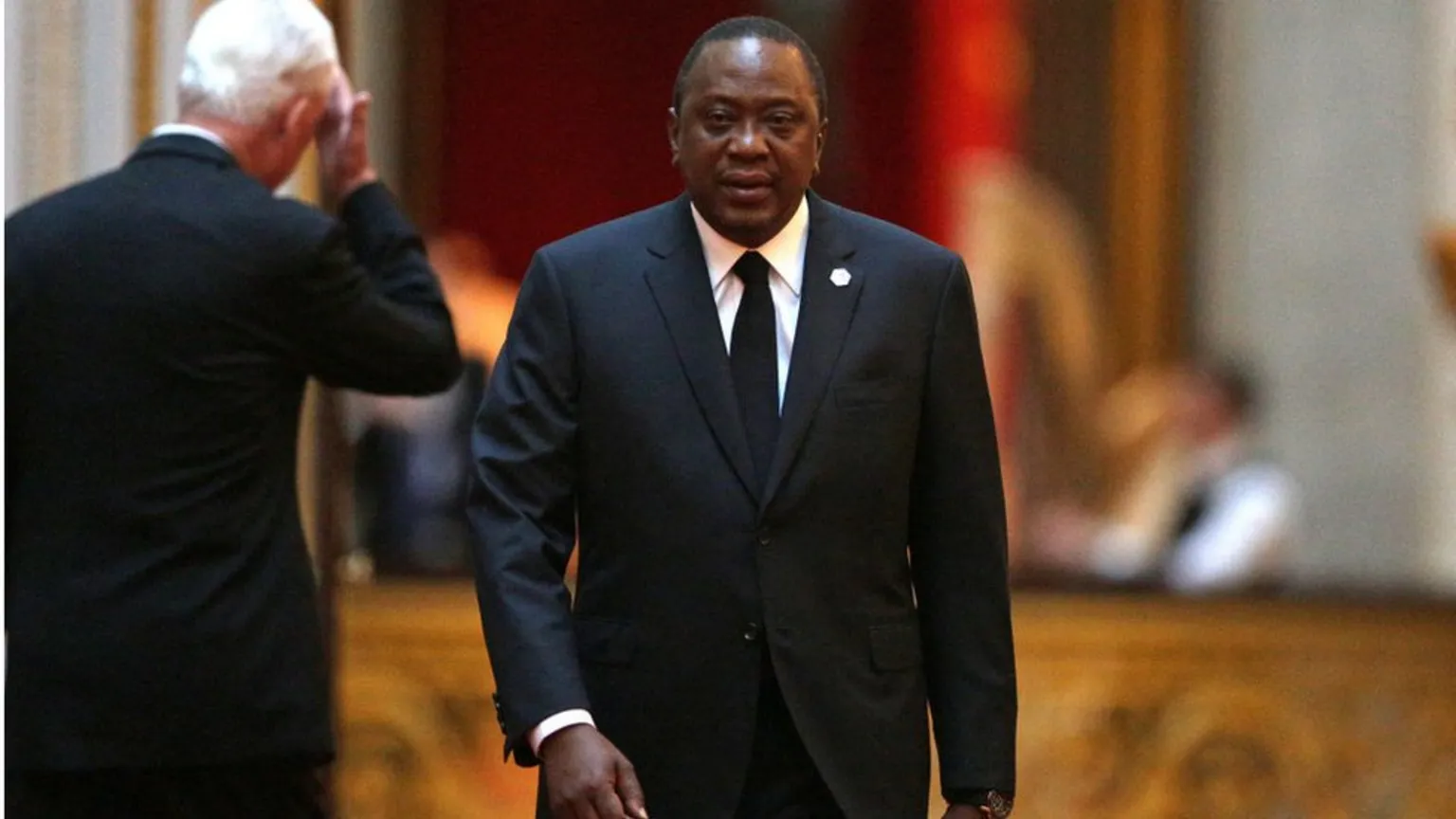
Smooth Criminal: Uhuru Kenyatta weaponized ethnic emotions and boomer nostalgia-ism to whitewash the dark era of Jomo Kenyatta’s presidency
The emphasis on Kikuyu dominance fueled perceptions of ethnic favoritism, and the handshake with Raila Odinga in 2018, while stabilizing, was seen by some Kikuyu as a betrayal of their trust in Uhuru as their prophesied leader triggering them to make an even more monumental disaster by endorsing the war-criminal and mass-murderer William Ruto.
The Legacy
Nostalgia-ism, as deployed in Uhuru Kenyatta’s elections, was a powerful propaganda tool that capitalized on Jomo Kenyatta’s mythologized achievements and the culturally resonant prophecy of Mugo wa Kibiru. It framed Uhuru’s presidency as the fulfillment of a divine and historical destiny, rallying Kikuyu voters and deflecting scrutiny of his qualifications or his family’s controversial legacy.
However, this approach relied on selective history and fraudulent folklore, raising ethical questions about exploiting cultural heritage for political expediency. While effective in securing power, it deepened ethnic divisions and underscored the need for Kenyan politics to move beyond nostalgia-driven propaganda toward substantive, inclusive governance.
Squandered Potential: A Nation Betrayed
Kenya’s post-independence era handed Boomers a nation brimming with potential: functional roads, schools, hospitals, and social halls where communities thrived. Jobs were so plentiful that one could arrive in Nairobi with just an ID and secure work. Yet, Boomers squandered this inheritance through a collective failure to engage in critical discourse. Instead of fostering a unified national identity, they clung to tribal and rural loyalties, allowing politicians to exploit these divisions for electoral gain.
The euphoria of independence blinded them to the need for scrutiny, and they failed to question leaders who rebranded colonial projects as their own or mismanaged the economy. The result? A degraded infrastructure, sold-off public spaces, and a fractured social fabric that younger generations must now rebuild from scratch.
Poor Electoral Choices: Electing Despots, Not Leaders
Boomers’ naivety has been most devastating in the political arena. Seduced by the myth that Uhuru Kenyatta’s presidency would revive the imagined glory of his father Jomo Kenyatta’s era, they propelled him to power, ignoring the truth: Jomo’s legacy was built on renaming colonial projects, not creating new ones. Boomers’ belief that leadership is inherited like eye color led them to bet on Uhuru, only to plunge Kenya into despair under his governance.

Boomers were whipped into a frenzy with emotive songs like “Tugokira Tene” which were lacking in substance and intellectual depth
This pattern repeated with William Ruto, whose rebranding of old projects and empty promises echo the same failures. Boomers’ predisposition to poor electoral choices, driven by ethnic rhetoric, vernacular radio, and corrupt clergy, has entrenched a cycle of electing despots who prioritize patronage over progress, leaving the nation mired in poverty and division.
Captured by Dogma and Colonial Brainwashing
The Boomers’ intellectual surrender is deepened by their capture by religious dogma and colonial-era mindsets. Vernacular radio stations and corrupt clergy have pumped their minds with toxic narratives, glorifying tenderpreneurs and importers while ignoring the collapse of manufacturing and agriculture.
Raised in an era of functional systems, Boomers failed to challenge the rebranding of colonial projects or hold leaders accountable for selling off public assets like school plots and stadiums. Their reverence for corrupt pastors, who peddle “cock and bull stories” to extract wealth, reinforces a culture of compliance over inquiry.
This mutated Stockholm syndrome, where they embrace their oppressors, stems from a colonial brainwashing that prioritizes foreign validation over local solutions, ensuring Kenya’s continued exploitation by both domestic elites and Western powers.
Contempt for Homegrown Talent and Exceptionalism
Under the guise of cultural compliance, Boomers have shown blatant contempt for Kenya’s intellect, talent, and exceptionalism. They dismantled public resources: playgrounds, stadiums, libraries and schools, viewing them as relics of their youth, irrelevant to the future. In places like the Mount Kenya region, they dismissed sports as a path to longevity and health, grabbing parks with “reckless abandon” to sell for profit.

Boomers have an ingrained contempt for the youth and thus social amenities meant for young people have been pillaged, neglected, grabbed and destroyed
Their preference for importation over local manufacturing killed industries, leaving workers in export processing zones (EPZs) queuing for jobs riddled with cronyism and tribalism.
Boomers’ failure to nurture local talent, whether in sports, education, or innovation, has robbed Kenya of its potential, replacing it with a culture of gossip and mediocrity that stifles progress.
Lost Opportunities: A Nation Stripped Bare
The opportunities lost under Boomer stewardship are staggering. They inherited stadiums, social halls, and a manufacturing base that could have propelled Kenya forward. Instead, they sold off school plots for hotels, turned playgrounds into private estates, and allowed infrastructure to decay into “junkyards.”
Their disdain for sports and public spaces, evident in locking down airport roads under false terrorism claims, has stifled inspiration for Kenya’s youth, who could have aspired to greatness seeing planes take off or athletes compete.
By prioritizing foreign validation, like the Africa Growth and Opportunity Act, over equitable partnerships, Boomers enabled exploitative deals, like France’s uranium extraction from Niger at a fraction of its value, keeping Kenya and Africa tethered to poverty.
A Call to Reject Boomer Wisdom
Younger generations must heed the lesson: age does not equal wisdom. Boomers, with their entitled demand for respect despite leaving nothing behind, no hospitals, no roads, no schools, are a cautionary tale. Their susceptibility to scams mirrors their electoral gullibility. The suggestion to bar those born between 1940 and 1970 from voting, while extreme, underscores their proven track record of poor choices. Voluntary disengagement, through reasoned dialogue, is the path forward.

STUCK IN A RUT: Boomer obsession with this lot of misguided politicians makes them a liability in pursuit of justice and economic transformation
Kenya’s youth must reject the Boomer mentality, turn out in large numbers for protests, and forge a new path based on competence, not nostalgia or tribalism.
Breaking the Cycle: Building Windmills, Not Walls
The winds of change are blowing, as Traore’s question, why does resource-rich Africa remain poor, gains traction. Boomers built walls, clinging to “tugokira tene” and a toxic past. Younger generations must build windmills, harnessing the potential Boomers squandered. The eight million Kenyans who boycotted past elections signal a growing rejection of the status quo.
By ensuring Boomers stay home on Election Day, not through force, but through conviction, youth can overhaul a system rotten with patronage and division. The Boomer legacy of infamy, poverty, and stupidity is a warning: fools grow old, but wisdom requires courage.
Kenya’s future depends on dismantling their failures and reclaiming the nation’s lost promise.
